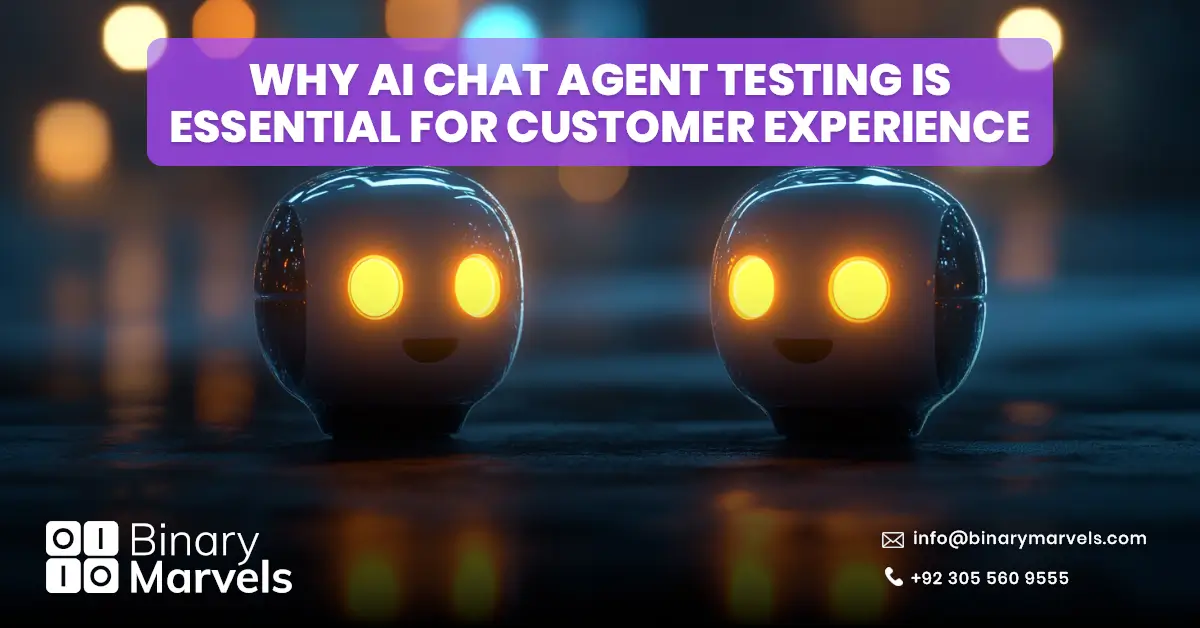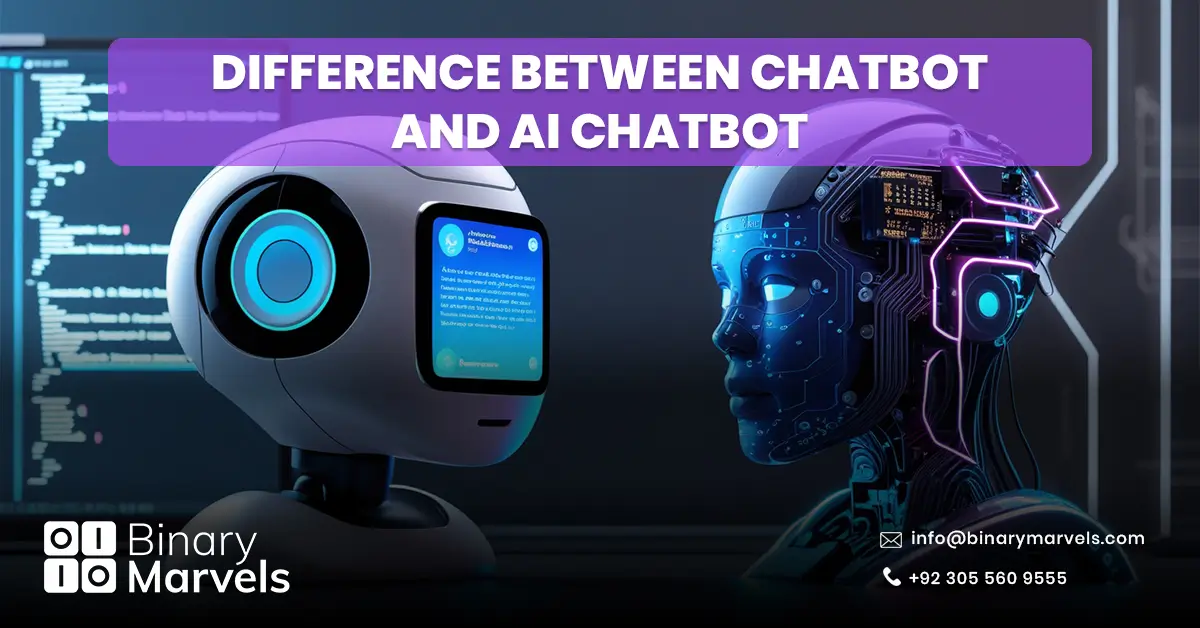
These days, more and more businesses are turning to AI-powered tools to improve their customer support. One of the biggest game-changers? Chat agents—also called chatbots. They help handle customer questions, speed up responses, and boost satisfaction. But here’s the thing: even the smartest chatbot can mess up if it hasn’t been tested properly.
In this guide, we’ll break down why testing these bots is so important. You’ll see how AI plays a big role in support, the common challenges it faces, and the best ways to make sure your chatbot actually helps your customers instead of confusing them.
Also Read: Top 10 AI Companies in Pakistan
The Importance of AI in Revolutionizing Customer Support
Artificial Intelligence, especially conversational AI, is changing the world of customer service by letting companies deploy support 24/7. AI chatbots using natural language processing (NLP) accurately and instantly respond to many customer queries, reducing the response time and time spent trying to resolve simple problems. This increases operational efficiency and improves customer satisfaction by instant support regardless of the time or location.
Chat agents powered by AI assist in expanding client services without incurring the costs of employing additional resources. Sectors like healthcare, finance, and e-commerce which experience high volumes of customer inquiries, greatly benefit from AI chatbots as they ensure effective serviced. By taking care of basic questions and menial tasks, businesses allow their human representatives to devote themselves to more complex problems, improving the entire client servicing workflow.
Key Benefits AI Brings to Customer Interaction
AI chatbots deliver numerous benefits for customer service and assistance:
Always Exceptional Service: Whereas human representatives might require some downtime, chatbots are always operational and ready to assist customers at any hour of the day for any number of days without taking a break.
Immediate Reaction: Customer support AI chat agents work instantly and always provide answers to customer’s questions right away, virtually eliminating the time spent waiting for a response.
Highly Effective: Routine customer service tasks can be managed using AI chatbots, which will automate the function, meaning these services can be delivered at a lower cost which is beneficial to business operational costs.
Equality in Service: AI chatbots are programmed to give precise identical replies to all clients ensuring great accuracy in service hence highly dependable interactions with customers.
With the ability to analyze trends, AI chatbots can issue tailored suggestions and responses based on the customer’s profile thus elevating the user experience.
Also Read: DeepSeek vs ChatGPT – How Do These LLMs Compare in 2025?
The Need for Continuous Testing in AI Chat Agents
Even though AI chatbots can be remarkably helpful, they are not without flaws. An example of this is when a poorly trained chatbot gives the wrong answer as a response, and rather than helping the customer, the chatbot further frustrates them. Because of these shortcomings, testing needs to be done always.
Testing is able to pinpoint areas of poor execution like a chatbot being too slow to respond, not understanding particular questions, or manipulating the data incorrectly. Businesses are able to better calibrate their bots through ongoing tests, enabling the bots to accurately meet the expectations of users and deal with a variety of new queries. Also, through tests, businesses are able to enhance the chatbot’s language processing skills and flexibility in dealing with evolving customer demands.
Overcoming Common Challenges with AI Chatbots
Despite their potential, AI chatbots face several challenges:
- Understanding Complex Queries: While AI chatbots excel at handling routine queries, they may struggle with complex or nuanced questions that require human-like reasoning.
- Handling Multiple Languages: Many AI chatbots are optimized for a single language, making it difficult to support customers who speak different languages.
- Adapting to Various Scenarios: AI chat agents need to be tested across various scenarios to ensure they respond appropriately to edge cases.
- Ensuring Data Security: As chatbots handle sensitive customer data, it is crucial to ensure that they adhere to the latest data security standards.
Through rigorous and continuous testing, businesses can overcome these challenges and ensure that their AI chat agents remain effective, accurate, and secure.
Also Read: AI and Gen AI: What’s the Difference?
Crucial Metrics to Measure Chat Agent Effectiveness
To understand how well your AI chat agent is performing, keep a close eye on these key metrics:
- Response Accuracy
Is the chatbot giving users the right answers? This metric shows how well it understands and responds to real-world questions. The more accurate the responses, the more useful the experience. - Response Time
Fast responses matter. Track how long it takes for your chatbot to reply once a user sends a message. Quick turnarounds keep users engaged and reduce frustration. - Customer Satisfaction
After a conversation, are users happy with the outcome? Simple surveys or rating prompts can give you a clear picture of how your chatbot is being received. - Resolution or Completion Rate
How many conversations can your chatbot handle from start to finish—without a human stepping in? A higher resolution rate shows it’s doing its job effectively. - User Engagement
Are people actually using your chatbot? And if so, are they coming back? A growing number of interactions (and return users) usually signals a helpful and reliable tool.
Types of AI Chat Agent Testing Methods
Testing an AI chatbot isn’t just about checking if it works — it’s about making sure it works well for real people in real situations. Here are a few essential ways to evaluate your chat agent’s performance:
Functional Testing
This is your baseline check. It answers questions like: Does the chatbot respond appropriately? Can it follow through on actions like scheduling, answering FAQs, or helping customers place an order? You’re looking for practical functionality — no glitches, no guesswork.
Usability Testing
A chatbot might be technically correct, but is it user-friendly? Usability testing looks at how easy the chatbot is to interact with. It highlights anything that feels awkward or confusing during the conversation. If users have to think too hard or repeat themselves, that’s a red flag.
Performance Testing
This is where you see how the bot handles pressure. You test it during peak usage or simulate a flood of user requests. Can it keep up? Does it slow down or crash when faced with complicated queries or high traffic? The goal here is stability and speed under stress.
Best Practices for Efficient AI Chat Agent Testing
To ensure that your AI chat agents perform at their best, here are some best practices to follow:
1. Regular Testing Schedules
AI chat agents should be tested regularly to catch any issues before they impact the customer experience. Regular testing helps ensure that the chatbot remains up-to-date with the latest queries and updates in customer needs.
2. Incorporate Real User Feedback
Collecting feedback from real users is invaluable. User insights can provide important information about how well the chatbot is meeting their needs and where it can improve.
3. Implement Ongoing Improvements
Testing should not be a one-time activity. AI chatbots should undergo continuous improvement based on the results of ongoing tests and customer feedback.
Key Insights for Businesses to Enhance AI Chatbots
Businesses that invest in continuous testing of their AI chat agents can enhance the customer experience, improve service efficiency, and gain a competitive edge. By measuring key metrics, identifying performance issues, and ensuring the chatbot can handle various scenarios, businesses can maintain a high level of customer satisfaction and loyalty.
Also Read: How to Train AI for Effective Customer Service?
Frequently Asked Questions (FAQs)
Q: How often should AI chat agents be tested?
A: AI chat agents should be tested regularly, especially after updates or when introducing new features. Continuous testing ensures the chatbot remains effective and adaptable.
Q: What tools can be used for testing AI chatbots?
A: Several tools can be used for AI chatbot testing, including Botium, TestMyBot, and Applitools. These tools help automate testing and evaluate chatbot performance.
Q: Can AI chat agents understand multiple languages?
A: Yes, but it depends on the chatbot’s capabilities. Some chatbots are multilingual, but businesses may need to test the chatbot across different languages to ensure optimal performance.
Final Thoughts
AI chat agents are revolutionizing customer support by providing faster, more efficient, and always-available solutions. However, for businesses to fully leverage the power of these technologies, rigorous and continuous testing is essential. Proper testing ensures that chatbots remain responsive, accurate, and capable of adapting to ever-changing customer needs.
By regularly measuring key metrics like response accuracy, performance, and customer satisfaction, businesses can identify areas for improvement and maintain a high-quality user experience. With best practices like incorporating real user feedback and enabling ongoing improvements, companies can ensure their AI chat agents not only meet but exceed customer expectations.
As the role of AI in customer service continues to expand, ongoing testing and optimization will remain crucial in providing seamless and personalized experiences that drive customer loyalty and satisfaction. Start testing today, and turn your AI chat agents into powerful tools for delivering exceptional customer service.
Supercharge Your Business with AI Today!
As a trusted AI Development Company in Pakistan, we deliver cutting-edge AI Development Services designed to streamline your operations and enhance customer engagement.
Don’t wait—connect with us now and take your business to the next level!









